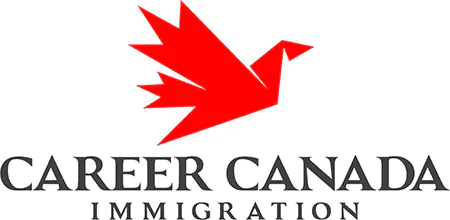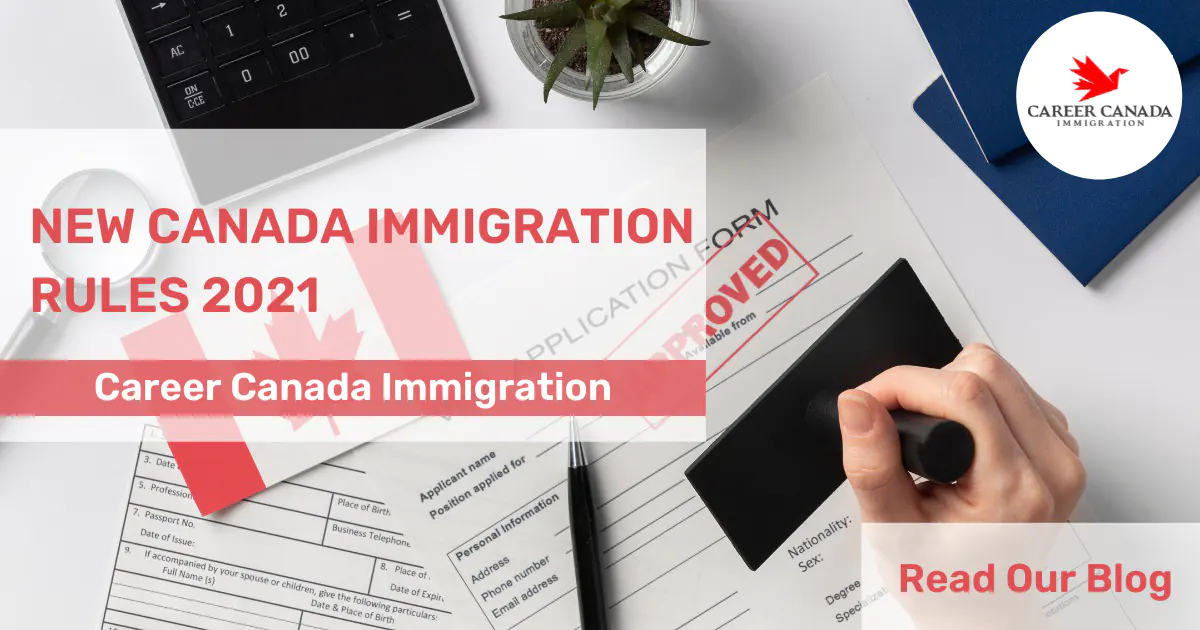Canadian immigration rules keep changing periodically, which makes it necessary for you to stay updated at all times. If you are planning to immigrate to Canada between 2021 and 2023, you need to know the new guidelines to follow. It will help you streamline the process of immigration and permanent residency.
In 2020, Immigration Refugees and Citizenship Canada (IRCC) had released temporary measures due to travel restrictions. The process of Canada immigration remains similar to it was before the pandemic. However, it will be helpful to consider changes due to COVID-19 travel restrictions to have a complete idea regarding Canada PR.
The onset of the pandemic delayed the process of applying for a PR visa. IRCC allowed immigrants to provide complete visa applications for permanent residency with a 90-day timeline.
The pandemic highlighted the significance of having Canadian immigrants. The communities came together to uphold all sectors of the economy, especially healthcare. Moreover, the agriculture and IT sector also relied upon newcomers to maintain supplies and generate employment.
Travel restrictions led to a capacity constraint, leading to a lower number of applicant approvals across 2020. However, the Canada government pledged to compensate and stated that it would continue to invite 1% of the Canadian population. On average, the numbers stand as 401,000 immigrant acceptances in 2021, 411,000 in 2022, and 421,000 in 2023.
Canada immigration highlights for 2021-2023
- There will be an increase in the number of Canadian immigration between 2021 and 2023 to fill the shortfall of 2020
- Canada increases the immigration target to 432,000 immigrants in 2022 (source)
- 60% of admission will happen through economic immigration programs
- There will be a focus on a community-based approach to fulfil diverse demographics to enhance the workforce across Canada
- Focus on digital transformation to aid the immigration process to streamline PR approvals more seamlessly
- Approvals under Francophone Express Entry will improve growth for Francophone communities in regions excluding Quebec
- Acceptance of 500 refugees within between 2021 and 2023 through Economic Mobility Pathways Project
- PR for eligible asylum seekers based on their active contribution to the front line between March 13 and August 14, 2020, offering direct patient care during the crucial time.
- The PR process includes Federal Skilled Worker Program, Federal Skilled Trades Program, and Canadian Experience Class.
- The immigration process includes Self-employed Persons Program and Start-up Visa Program
- The immigration process includes Home Support Worker Pilot, Home Child-Care Provider Pilot, replaced by Caring for People with High Medical Needs Class and Caring for Children Class.
- IRCC plans to make the Atlantic Immigration Pilot Program permanent. Admissions between 2017 to 2019 will remain as under Economic Pilots.
- Quebec retains complete control of immigrants entering the province, with exceptions only under the family class or protected persons program.
- Introduction of a new stream for 250 humanitarian workers, journalists, and human rights advocates.
Canada immigration plan from 2021 to 2023
Canada will welcome 401,000 immigrants as permanent residents in 2021. Out of this number, 108,500 will be approved under the Federal Express Entry System and 80,800 through Provincial Nominee Programs.
As per IRCC, the country will welcome more than 1 million permanent residents by the end of 2023. It is an excellent target considering the impact of COVID-19 and worldwide economic downfall. IRCC revealed the Supplementary Information for Immigration Levels Plan between 2021 and 2023.
Immigrants under Federal High skilled 2021
Canada will allow 108,500 to receive permanent residency under the Federal High skilled category in 2021. The subcategories under this include:
- Canadian Experience Class
- Federal Skilled Worker Program
- Federal Skilled Trades Program
These fall under the Federal Express Entry System, the most popular point-based immigration program under economic immigration programs.
Express Entry will touch a new milestone by issuing a higher number of annual invitations than ever before. The system already welcomed 82,850 throughout 2020 until October 2021.
The targeted number of invitees under Economic immigration programs is 232,500 for this year. It includes the Quebec Skilled Worker Program, Atlantic Immigration Pilot Program, Economic Pilots, etc.
Immigrants under Provincial Nominee Programs 2021
There will be a total of 80,800 immigrants welcomed under PNPs. The target till now has been 67,800.
Canada PNPs participate in the immigration process to nominate many immigrants to help them obtain PR visas. It is a system through which immigrants with comparatively lower point scores can make their way into the country.
Family immigration program
IRCC will admit 103,500 people under this program in 2021. Under this, 23,500 immigrants will be allowed under the Parents and Grandparents Program (PGP), while 80,000 under Spouses, Partners and Children sponsorship programs.
Immigration under humanitarian grounds
Under Refugees and Protected Persons, Canada will welcome 59,500 people. Under the Total Humanitarian & Compassionate and Other category, Canada will accommodate 5,500 people.
Latest rules pertaining to Canada Immigration 2021
The following points will highlight the changes and help you note how to immigrate to Canada in 2021:
- Rules relaxed for Rural & Northern Immigration Pilot
The immigration program for Rural & Northern Immigration Pilot (RNIP) has become comparatively more accessible than before. Applicants do not need work experience over a continuous period.
Applicants who can prove to have more than one year of consistent experience or equivalent to 1,560 hours within the past three years before applying will now be eligible for permanent residence. Thus, an individual who had pauses within the past three years but records more than the considerable hours of employment can apply for Canadian immigration.
The rule is likely to be retained for all applications under RNIP going forward. The change ensures that an eligible immigrant is not disapproved for taking a break or temporarily losing work due to the pandemic. The applicants must fulfil other criteria that remain constant.
IRCC is currently offering a temporary measure to allow RNIP candidates to have a work permit while waiting for a final decision on their PR application. It is another advantage given due to the pandemic.
- Rules for international students
The pandemic has brought a change in the regulations for international students wanting to study in Canada. The latest guidelines include roles and responsibilities of provinces, territories, and Designated Learning Institutions (DLIs) that support international students.
While there were several obstacles to allowing student immigration in Canada, 2020 saw many candidate selections through different programs.
The highly availed Express Entry program welcomed 87,350 students by November 2020. There were regular draws in 2021 for allowing more through the Provincial Nominee Programs and issuance of Invitations to Apply under these programs.
The guidelines have been levied through five different sections for this category of Canada immigration:
Section 1
The first guide records crucial information related to the pandemic. It summarizes responsibilities designated to Provinces, Territories, DLIs, and the government of Canada to ensure the safe entrance of foreign students.
Section 2
The second section records what coronavirus is to keep a detailed analysis regarding the disease, symptoms, causes, precautions, and diagnosis.
Section 3
It articulates what foreign nationals must know and follow before leaving their country to immigrate. It strictly prohibits every international student or accompanying guardian from boarding a flight if they have symptoms indicating COVID.
Before immigrating to Canada, a student might confirm if the institution they plan to study falls under the approved list Based on Quarantine Act and Emergency Orders.
Upon the arrival of each student, they will have to go through a health assessment taken by a screening officer. They will also have to quarantine themselves for two weeks.
Section 4
The fourth section explains all the roles and responsibilities that DLIs, territories, provinces, and the Canadian government must adhere to.
Section 5
The last section shares insights into Fundamental Values for Race to maintain unity. Aspects like Cultural Diversity and Inclusion are what Canada pledges to have. Thus, such information not only welcomes students but also encourages them to maintain harmony.
- New AINP streams for Alberta
Alberta province launched two Alberta Immigrant Nominee Program (AINP) streams for foreign students. These are:
- International Graduate Entrepreneur Immigration Stream that started from October 2020
- Foreign Graduate Start-up Visa Stream that began from January 2021
Alberta introduced several changes to AINP that came into effect in October 2020. The fundamental differences are:
- An online platform to operate Express Entry program exclusively for Alberta and Alberta Opportunity Stream
- The application fee structure
- An added advantage for French language skills
The chances of obtaining Canadian permanent residence now doubles up if a person knows how to read, write, and speak French. According to an Express Entry update in October 2020, candidates with French language skills will add more points to their Comprehensive Ranking System (CRS). The changes in the advantages record as:
- an increase to 25 points from 15 for French language skills
- an increase from 30 to 50 for bilingual candidates applying via Express Entry
Thus, knowing both English and French will increase CRS points making a candidate more eligible for Canadian permanent residency.
- Immigration application changes for Quebec
The immigration processing fees from January 2021 is higher than before, as it increases every year on average.
The province announced changes for applications under Foreign Student Program and Quebec Experience Program. It has become mandatory for every applicant to submit programs electronically. Paper applications will not be accepted.
Electronic transmission of documents is now necessary for:
- the pilot program for orderlies
- pilot program for workers in food processing
- pilot program for workers in the artificial intelligence (AI), information technologies (IT) and visual effects sectors;
Quebec plans to welcome 27,500 to 29,300 immigrants in 2021, with the majority of skilled workers being 24,200 in number. There will be 4,300 immigration under Quebec Entrepreneur Program and Self-Employed Program for business immigration. The remaining people will come under economic categories.
Still confused or have doubts about how you can immigrate to Canada? Our team of IRCC registered immigration consultants will help you to successfully immigrate to Canada and become a permanent resident. Contact us today!

